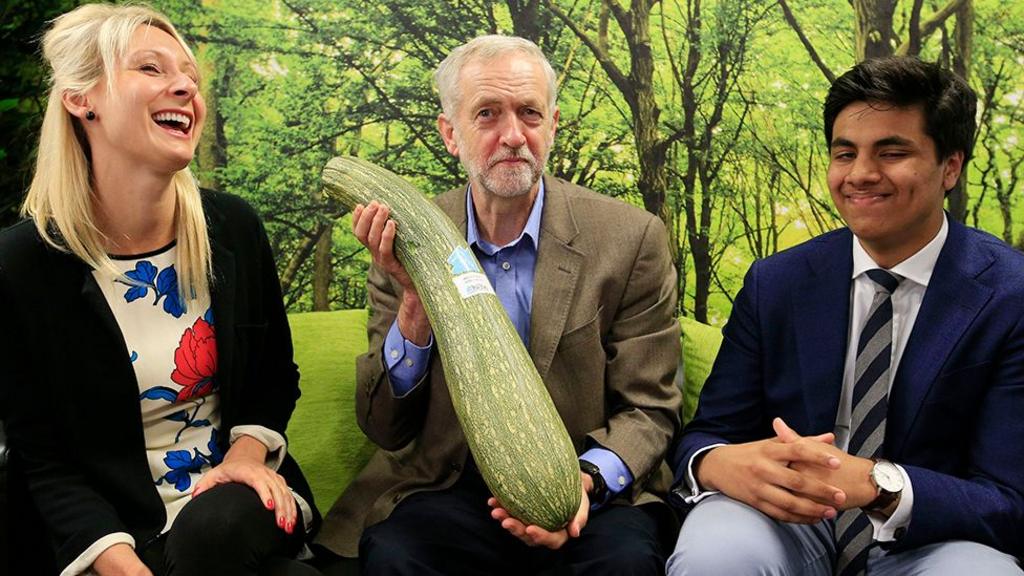Jeremy Corbyn has publicly criticized Angela Rayner, his former Labour colleague, for approving the sale of land encompassing eight allotment sites since the last general election.
Allotments, small plots of rented land where residents cultivate their own produce, are typically safeguarded from development or sale under the Allotment Act 1925, requiring ministerial approval for any exceptions.
A government spokesperson stated that stringent criteria govern allotment sales, which should only occur when “clearly necessary”.
In an article for the Telegraph, avid gardener Corbyn celebrated the “joy of digging ground for potatoes” and cautioned that such sales render “the future of these precious spaces even more perilous”.
The former Labour leader, who recently announced the formation of a new political party, regularly discusses his enthusiasm for growing crops at his North London allotment, where he particularly favors marrows.
In his letter to the Telegraph, the Islington North MP detailed the history of allotments, tracing their origins to the enclosure of common land by landowners during the Middle Ages.
Corbyn emphasized that access to common land for cultivation and grazing was a central demand of the Diggers during the English Civil War, asserting that the Enclosure Acts represented “one of the most grotesque abuses of power by Parliament”.
He argued that the loss of land access led to “starvation” for the rural poor and forced their “migration to industrial cities” such as Birmingham, adding that “allotments, then, grew out of opposition to enclosures and the privatisation of common land”.
Figures from the National Allotment Association suggest that allotments remain essential for many, noting that one in eight UK residents lack access to a garden, with that figure rising to one in five in London.
Approximately 100,000 individuals are currently on allotment waiting lists, some having waited for decades.
Rayner’s approval for councils to sell off eight allotment sites was revealed in a parliamentary response last month, encompassing locations in Derbyshire, Nottinghamshire, Oxfordshire, Somerset, Kent, Hertfordshire, and West Sussex.
Developers intend to construct new homes on the community allotment sites in Derbyshire, Somerset, and West Sussex.
“Of course, social housing is desperately needed, but we need not sacrifice these vital green spaces to build it,” Corbyn stated in his letter.
“We can build on ex-industrial land and take over empty properties. Even then, we should ensure social housing is accompanied by community gardens and adequate growing space.”
“Is this government going to put the nail in the coffin of the joy of digging ground for potatoes on a cold, wet February Sunday afternoon?”
“The battle for the grass roots is on!”
The Ministry for Housing Communities and Local Government (MHCLG), overseen by Angela Rayner, has been contacted for information regarding the number of allotments sold off in previous years.
A spokesman said that councils should only sell off allotments “where it is clearly necessary and offers value for money”.
He added: “We know how important allotments are for communities, and that is why strict criteria is in place to protect them, as well as school playing fields.”
However, the Conservatives characterized the policy as “a kick in the teeth to local people who don’t have access to their own gardens” and urged the government to enhance protections for green spaces.
Sign up for our Politics Essential newsletter to keep up with the inner workings of Westminster and beyond.
The ex-Labour leader wants supporters to come up with a name for his new party.
Councillor Grace Lewis, 21, pledges to help with the setting up of the new political party.
Noah Venn is using allotments to provide healthy food for 150 families using a food bank.
Labour and the Greens appear to have the most to fear from a new left-wing party but UK politics is very volatile.
The former Labour leader joins forces with fellow Independent MP Zarah Sultana to launch “a new kind of political party”.

